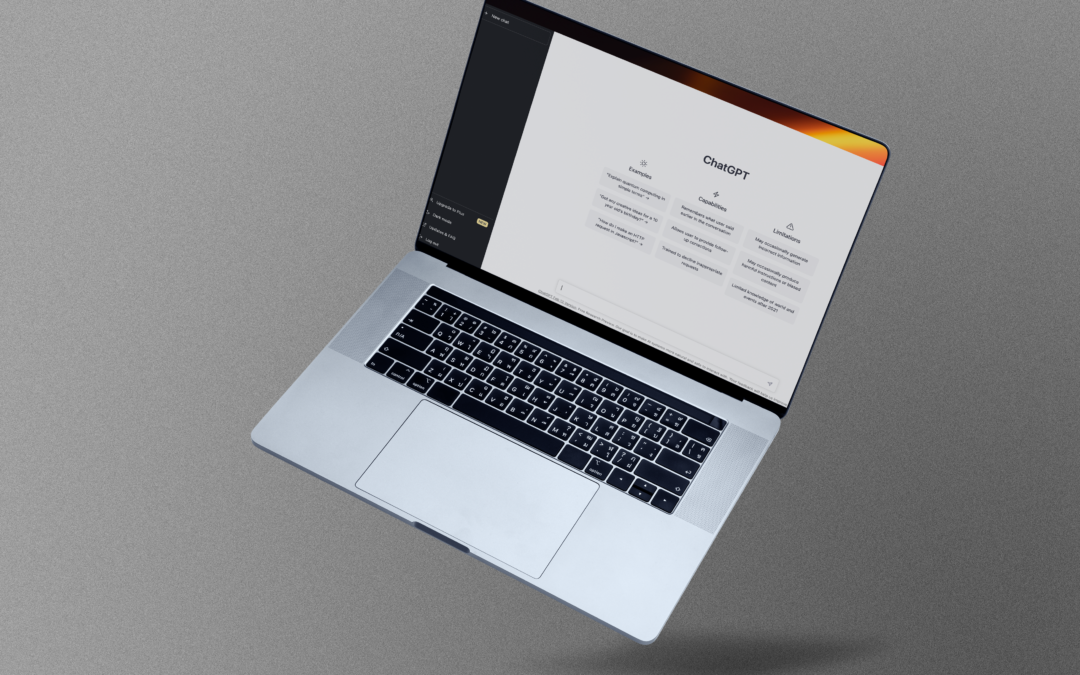While some have worries about ChatGPT putting people out of work, in my opinion, I don’t think that’s going to happen. At least not anytime soon.
It’s a great tool to have and utilize in your business, but that’s exactly what it is, a tool. The content it produces comes off as pretty stale and lacking a human touch.
In my experience using ChatGPT, it’s a starting point that is helpful when I’m writing content. But I always read through it thoroughly, make the necessary edits, and add links to sources I’ve used in my research.
My experience as a former digital director at a news station taught me to take information, like what ChatCPT provides, at face value and triple-check the details. Ethically, I always recommend that you take the time to create content that’s worth reading. Don’t rely on a program to do all of the work for you.
I asked ChatGPT to write a blog post about what ChatGPT is and how to use it in your business.
Here’s what it came up with in a matter of seconds:
“ChatGPT, also known as GPT (Generative Pre-trained Transformer) chatbot, is an AI-powered chatbot that uses natural language processing and machine learning to generate human-like responses to a wide range of questions and topics. It has been trained on a massive corpus of text data, which allows it to generate responses that are contextually relevant and grammatically correct.
Businesses can use ChatGPT in a variety of ways to improve their communication with customers and streamline their operations. Here are some examples:
- Customer service:
ChatGPT can be used to handle customer inquiries and support requests. By providing instant responses to common questions, such as product information, shipping details, or order status, ChatGPT can help reduce wait times and free up your customer service team to focus on more complex issues.
- Lead generation:
ChatGPT can be programmed to collect information from potential customers, such as their contact details or their product preferences. This can help businesses generate leads and build their customer database.
- Sales:
ChatGPT can be used to provide customers with product recommendations or upsell opportunities. By analyzing a customer’s purchase history or browsing behavior, ChatGPT can suggest products that may be of interest to them and encourage additional sales.
- Marketing:
ChatGPT can be used to create personalized marketing messages or assist with customer segmentation. By analyzing customer data, ChatGPT can help businesses create targeted marketing campaigns that are more likely to resonate with their audience.
- Employee support:
ChatGPT can be used to provide employees with quick access to company policies, procedures, or other internal information. By having this information readily available, employees can be more productive and efficient in their work.
In conclusion, ChatGPT is a powerful tool that businesses can use to improve their communication with customers and streamline their operations. By leveraging its natural language processing and machine learning capabilities, businesses can provide faster, more accurate responses to customers and enhance the overall customer experience.”
While that blog post is great, there are several edits I would make before publishing this.
The first sentence in each paragraph starts with the “ChatGPT can be….”, that redundancy won’t keep the reader’s attention. The readability of your content impacts your SEO score. If someone finds your writing difficult to read, they may spend less time on your website and leave altogether. This increases the bounce rate and reduces the average time spent on your page
When your content is poorly written, search engines might have difficulty understanding the main topics and keywords on your website. This is relevant to your ranking in search results.
Only use “in conclusion” if you’re writing an essay for school. Even in that scenario, I feel like it’s overused and boring. It does NOT belong in the content you’re making to grow your business or attract new customers.
Another really important thing to factor into whether or not you use ChatGPT is the value your readers are getting out of the content. The above example tells us what the tool is and how it can be helpful, but it doesn’t go into detail about the WHY.
Referencing point #4 in the example, why is it important for me to have targeted marketing campaigns that are more likely to resonate with my audience? If I were to edit this, I would add a link to this blog post about content marketing and how 70% of the buying decision is made before a potential customer talks to the company.
As I mentioned above, it also doesn’t include any links to sources or statistics. Remember, it’s a chatbot, not a search engine. It’s not capable of original research.
If you choose to use the AI tool, make sure you fact-check the information before publishing it anywhere. While it mimics human writing, it’s still not human.
Example of ChatGPT Not Being Perfect
A recent example of ChatGPT giving me wrong information is when my coworker and I were coming up with content for Women’s History Month. We asked the AI tool for examples of women who have made an impact on dentistry throughout history. While some of the information was correct, a few of the names were misspelled and their historical contributions were inaccurate.
Luckily, we did our own research on each woman and found dependable resources that we could reference.
Try Not to Worry About ChatGPT
Yes, employers might use ChatGPT to replace certain positions. But those of us who care about the quality of our work will understand that it can never replace an actual person. And let’s be honest here, you have to have someone on the other end of ChatGPT asking it to produce the content.
It’s a great tool but one area where it’s really weak is working within the strategy of a larger team.
ChatGPT doesn’t take into account brand image, company tone, style guides, etc. Maybe one day it COULD be trained to do those things, but it doesn’t do them at the moment. You can specify what kind of tone you want, but (hopefully) your branding is more complex than that.
I’m not a tech expert and don’t claim to be, but I think ChatGPT will help writers and creators like me from becoming “burnt out”.
While the future of this AI tool is unpredictable, there are still many flaws that keep it from replacing us altogether. There will always be a need for creativity and skills that only humans can provide, so lean into technology and use it to your advantage.

